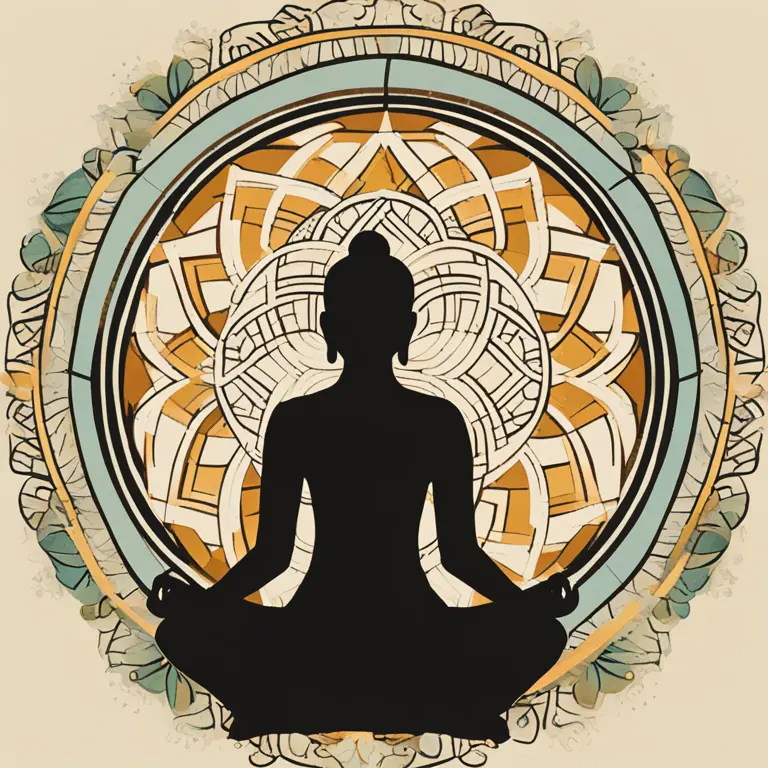
The Principles of Meditation and Mindfulness
Delve into the core principles of meditation and mindfulness, and discover how these ancient practices can benefit modern living.
article by Hina Kurosawa
Introduction to Meditation and Mindfulness
Meditation and mindfulness are age-old practices that have seen a resurgence in contemporary society. Not merely a trend, these methodologies offer profound benefits for mental clarity, emotional regulation, and overall well-being. Meditation often involves sitting in stillness, focusing on breath or a mantra, and allowing thoughts to pass without attachment. Mindfulness, while similar, is broader and can be integrated into daily activities, promoting an attentive and aware state throughout the day. The convergence of these practices equips individuals with tools to manage stress, enhance concentration, and foster a deeper connection to the present moment.

Meditation: A Deep Dive
Meditation is not a monolith; it encompasses various techniques, such as focused attention, guided visualization, or movement-based practices like yoga. The constant, however, is the deliberate effort to carve out a moment of silence and internal focus. Despite its historic roots in religious contexts, modern meditation has evolved into a secular practice well-suited for diverse lifestyles. Scientific research in 2024 continues to unveil its potential for neural plasticity, suggesting that consistent meditation can rewire the brain and imbue practitioners with enhanced cognitive resilience.

Mindfulness: Beyond Meditation
Mindfulness extends the principles of meditation into the flow of everyday life. It's about maintaining a moment-by-moment awareness of our thoughts, feelings, bodily sensations, and surrounding environment through a gentle, nurturing lens. By teaching us to respond rather than react, mindfulness has been integrated into various clinical therapies, including Mindfulness-Based Stress Reduction (MBSR) and Mindfulness-Based Cognitive Therapy (MBCT). Proponents argue that mindfulness fosters empathy and connection, making it an invaluable asset in a fast-paced and often fragmented modern society.

The Benefits for Mental Health
The positive implications of meditation and mindfulness for mental health are widely acknowledged. These practices have been linked to a decrease in the symptoms associated with anxiety, depression, and stress-related disorders. Their ability to anchor individuals in the 'here and now' allows for a reprieve from the whirlwind of thoughts often associated with these mental health challenges. With a burgeoning mental health crisis globally, mental health professionals continue to recommend these practices as complementary to traditional treatments for their inherent capacity to promote emotional equanimity.

Enhancing Physical Health
The intersection of meditation and mindfulness with physical health is a growing field of study. These practices have been associated with lowered blood pressure, improved sleep, and better pain management. The mindfulness component, in particular, encourages healthier eating habits and physical activity by fostering a heightened sense of body awareness. As such, integrating these techniques into daily routines is increasingly seen as an avenue for not only preventing but also potentially reversing certain chronic health conditions.
Adaptation in the Digital Age
In the digital era, meditation and mindfulness face the challenge of remaining relevant and accessible. A flurry of apps and online platforms now offer guided sessions, which demystify these practices and fit neatly into our gadget-oriented lifestyles. While some purists argue that technology may dilute the essence of these practices, the trends of 2024 reflect a symbiotic relationship wherein technology serves as a bridge, bringing ancient wisdom to the fingertips of a wider audience yearning for solace and balance in the digital chaos.
Published: 1/18/2024
Modified: 1/18/2024
More predictions
Come back here soon to learn more about yourself and your future


Exploring Meditation in Psychological Practice
Delve into the psychological perspective on meditation, its benefits, and applications in modern mental health practices.


How Meditation Reshapes Our Brains
Discover the transformative power of meditation and its profound impact on brain structure and function in this insightful article.


The Origins of Meditation: Tracing Its Historical Roots
Discover the historical origins of meditation, its transformation through time, and its profound impact on various cultures around the world in this insightful article.